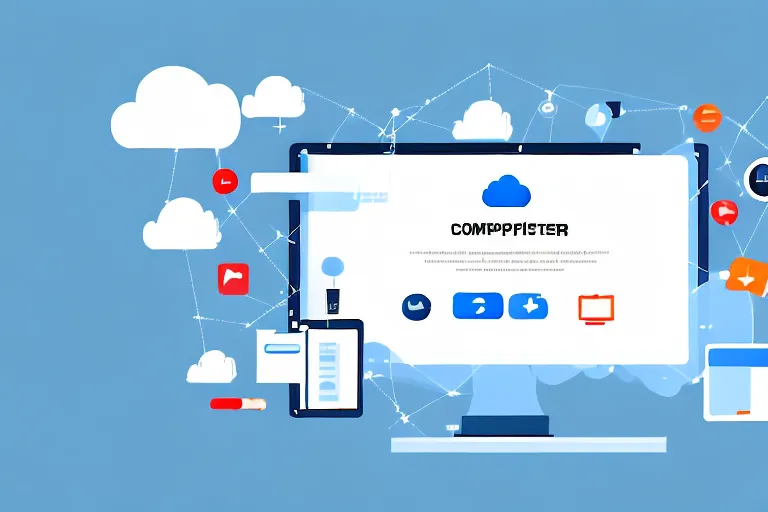How RCS Business Messaging APIs are Revolutionizing SaaS Platform Interactions

In today's highly competitive business landscape, enterprises are constantly searching for ways to enhance customer engagement and user experience while streamlining their internal processes. One technology that has emerged as a game-changer in this regard is RCS Business Messaging APIs. This article will delve into what RCS Business Messaging APIs are, how they differ from traditional SMS, and their benefits for SaaS platforms. We will also explore the challenges faced by SaaS platform providers and how RCS integration can help overcome these challenges.
Understanding RCS Business Messaging APIs
RCS Business Messaging is an advanced mobile messaging protocol that allows enterprises to communicate with their customers in a more interactive and engaging manner. It is a step-up from traditional SMS and offers features such as rich media, chatbots, suggested replies, and more. RCS messages are delivered via mobile carriers, eliminating the need for third-party messaging apps. RCS differs from SMS in that it allows enterprises to communicate with their customers without requiring them to download any additional software.
What is RCS Business Messaging?
Rich Communication Services (RCS) is a standard protocol used for mobile messaging on smartphones. RCS Business Messaging is an enterprise-grade messaging solution based on RCS technology that allows businesses to send rich media and interactive messages to their customers. These messages can include images, videos, maps, and other content, making them more engaging and compelling than traditional SMS messages.
One of the key benefits of RCS Business Messaging is that it enables businesses to create more personalized messaging experiences for their customers. With RCS, businesses can send targeted messages based on user behavior, location, and other factors. This means that businesses can deliver more relevant messaging experiences that are tailored to each individual user.
Key Features of RCS Business Messaging APIs
RCS Business Messaging APIs provide a range of features that enable enterprises to deliver rich and engaging messaging experiences to their customers. These include:
- Rich media support: With RCS, businesses can send images, videos, and other rich media content to their customers, making their messaging experiences more engaging and interactive.
- Chatbots: RCS Business Messaging APIs support chatbots, which enable businesses to automate customer service interactions and provide instant responses to common queries.
- Suggested replies: RCS messages can include suggested replies, which enable users to respond to messages quickly and easily.
- Two-way messaging: RCS enables two-way messaging, which means that businesses can have real-time conversations with their customers.
- Typing indicators: With RCS, users can see when the other person is typing, which makes messaging feel more like a real-time conversation.
How RCS Differs from Traditional SMS
RCS messages are different from traditional SMS in that they offer a richer and more engaging experience for users. RCS messages can include images, videos, maps, and other content, while traditional SMS is limited to plain text.
Another key difference between RCS and SMS is that RCS messages are delivered via mobile carriers, while SMS messages are often delivered via third-party messaging apps. This means that businesses can use RCS to communicate with their customers without requiring them to download any additional software.
In conclusion, RCS Business Messaging APIs offer a range of advanced features that enable businesses to deliver rich and engaging messaging experiences to their customers. With RCS, businesses can send targeted messages, automate customer service interactions, and provide real-time conversations with their customers. If you're looking to improve your messaging strategy, RCS Business Messaging APIs are definitely worth considering.
The Growing Importance of SaaS Platforms
Software-as-a-service (SaaS) is a rapidly growing market, with enterprises increasingly turning to cloud-based solutions to enhance their business processes. SaaS platforms offer a range of benefits, including scalability, flexibility, and lower costs compared to traditional on-premise software solutions.
One of the main reasons for the growing importance of SaaS platforms is their ability to provide businesses with access to cutting-edge technology without the need for huge upfront investments. This has been a game-changer for many companies, particularly startups and small businesses that may not have the resources to invest in expensive software solutions.
The Evolution of SaaS in Business
SaaS has come a long way since its inception, with many enterprises now adopting it for their mission-critical applications. In the early days, SaaS was primarily used for non-core business functions such as email and customer relationship management. However, as the technology has evolved, businesses have become more comfortable with using SaaS for their core business processes.
One of the key drivers behind the evolution of SaaS has been the shift towards remote work. With more and more employees working from home, businesses have had to find new ways to collaborate and stay productive. SaaS platforms have been instrumental in facilitating this shift, providing employees with access to the tools and resources they need to work effectively from anywhere in the world.
Benefits of SaaS Platforms for Enterprises
SaaS platforms offer a range of benefits for enterprises, including:
- Scalability: SaaS platforms are highly scalable, allowing businesses to easily add or remove users as their needs change.
- Flexibility: SaaS platforms are highly flexible, allowing businesses to customize their software solutions to meet their specific needs.
- Lower costs: SaaS platforms are typically more cost-effective than traditional on-premise software solutions, as they do not require large upfront investments.
- Automated updates: SaaS platforms are constantly updated with the latest features and security patches, ensuring that businesses are always using the most up-to-date software.
- Seamless integration with other cloud-based solutions: SaaS platforms are designed to work seamlessly with other cloud-based solutions, making it easy for businesses to integrate their software with other tools and services.
- Access to cutting-edge technology: SaaS platforms provide businesses with access to the latest and greatest technology, without the need for expensive investments in hardware and software.
Challenges Faced by SaaS Platform Providers
While SaaS platforms offer many benefits, they also present unique challenges for providers. One of the biggest challenges is security. With so much sensitive data being stored in the cloud, it is essential that SaaS providers take the necessary steps to ensure that their platforms are secure and protected from cyber attacks.
Another challenge faced by SaaS providers is the lack of customization options. While SaaS platforms are highly flexible, there are limits to what businesses can do in terms of customizing their software solutions. This can be a challenge for businesses that have very specific needs that cannot be met by off-the-shelf software solutions.
Finally, SaaS providers also face challenges in retaining customers. With so many options available in the market, businesses can easily switch from one provider to another if they are not satisfied with the service they are receiving. This means that SaaS providers need to constantly innovate and improve their offerings in order to stay ahead of the competition.
Integrating RCS Business Messaging APIs into SaaS Platforms
Integrating RCS Business Messaging APIs into SaaS platforms can provide a range of benefits for both providers and customers. RCS enables SaaS providers to deliver rich and engaging messaging experiences to their users, enhancing the overall user experience and increasing customer engagement and retention.
Enhancing User Experience with RCS
RCS messaging can be used to enhance the user experience in several ways. For example, RCS messages can be used to provide users with real-time updates on their accounts, such as account balances and payment confirmations. RCS messages can also be used to initiate two-way conversations between users and customer support representatives, providing users with a more personalized support experience.
Streamlining Business Processes through RCS Integration
RCS integration can also help streamline internal business processes for SaaS providers. For example, RCS messages can be used to send automated notifications to users, such as appointment reminders or shipping updates. This can help reduce the workload on customer support representatives and improve overall operational efficiency.
Use Cases of RCS Business Messaging in SaaS Platforms
There are many use cases for RCS messaging in SaaS platforms, including:
- Account management
- Appointment reminders
- Order tracking and shipping updates
- Real-time support and assistance
- Two-way messaging for feedback and surveys
The Impact of RCS Business Messaging on SaaS Platform Interactions
RCS Business Messaging APIs are revolutionizing SaaS platform interactions by providing a more engaging and interactive messaging experience for users. This enhanced messaging experience can lead to increased customer engagement and retention, improved operational efficiency, and a more personalized support experience for users.
Improved Customer Engagement and Retention
By delivering personalized and relevant messaging experiences, RCS messaging can help improve customer engagement and retention for SaaS platforms. Users are more likely to engage with personalized messages and are more likely to return to a platform that offers a personalized and engaging experience.
Increased Efficiency and Productivity
RCS integration can help improve overall operational efficiency for SaaS providers by reducing the workload on customer support representatives and automating certain tasks. This can help free up time and resources, allowing providers to focus on other areas of the business.
Strengthened Security and Compliance
RCS messaging is delivered via mobile carriers, providing an added layer of security for SaaS providers. Additionally, RCS Business Messaging APIs are designed to comply with industry standards and regulations, making it easier for SaaS providers to maintain compliance and avoid potential liability issues.
Conclusion
RCS Business Messaging APIs are revolutionizing the way enterprises interact with their customers on SaaS platforms. By providing a more engaging and personalized messaging experience, RCS integration can help increase customer engagement and retention, improve operational efficiency, and streamline internal processes. SaaS providers that embrace RCS messaging are well-positioned to stay ahead of the competition and provide a cutting-edge user experience.
